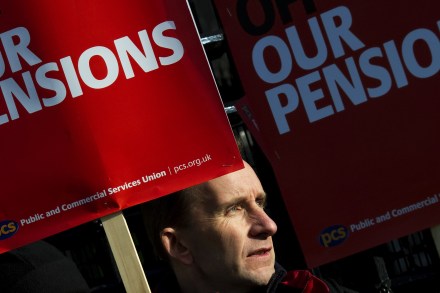Waiting for Dr Nasty
David Starkey is no longer quite as eager to show off his bitchy side, but he can be persuaded … ‘I don’t think I could have been Dr Fluffy,’ says David Starkey, poised behind a hake. ‘No. Absolutely not Dr Fluffy.’ He takes a sip of wine. He looks like an evil Professor Yaffle. I am here because I have long wanted to interview him, principally because once, when I was working for a newspaper gossip column, he gave me a line about Tories and sado-masochism too revolting to print. And he is always in trouble. On Jamie’s Dream School, a reality TV show where poor teenagers got celebrity teachers,









